Batool Ghavami, a resident of Sanandaj in Kurdistan province, had resorted to the justice system after enduring a long campaign of harassment, stalking, theft and violence. Instead of providing her with the security she needed, this encounter pitched her already disrupted life into a living hell.
"At Branch 103 of Sanandaj Criminal Court, in the presence of a judge, the defendant attacked me. He grabbed my left hand and I [thought I] felt a fist hit me under my shoulder. But then blood spattered my face and head, and I realized he had stabbed me. He repeatedly stabbed me in the shoulder with a knife until I felt my left hand detach from my body. Then he grabbed my head and stabbed me in the chest, ears, and neck.
“With the first blow, the judge fled the room. I shouted, ‘Oh, God, help me, he is killing me,’ and my sister entered the room and whacked him in the head with the stapler from the judge's desk. Then he let me go. I escaped from his clutches, but nobody intervened, even though armed guards were standing at the door, and he grabbed me again. He put both of his knees on my chest, broke many of my ribs, and stabbed me in the chest, stomach, and right hand. He was about to kill me. My sister grabbed him from behind. I pulled myself behind the judge's desk and fainted."
This is the story of the day Batoul Ghavami was nearly murdered on Sanandaj judiciary property: before judge's eyes, with guards looking on, by someone who had previously hounded her and her child. It exemplifies not merely the defects in Sanandaj Criminal Court’s security, but the suffering inflicted upon the lives of innocent Iranian citizens by an incompetent judicial system.
How a Dispute Over a Car Turned to Stalking and Violence
Batool Ghavami is 38. She lives with her elderly parents, having separated from her husband, along with her 11-year-old daughter. In February 2016, through a family acquaintance, she bought a Pride car from a man named Salar Shariati. The plan had been to remodel it and use it to generate an income for herself. “After buying the car, I spent a lot of money on it and made it new again,” she says. “That's where my problems with the car dealer began. “
Salar Sharifi filed a complaint against Ms. Batoul Ghavami for failing to pay some of the money from the sale of the car. The case was referred to Branch 4 of the Sanandaj Dispute Resolution Board. During the trial, the presiding judge has since confirmed, Sharifi accepted that he was not owed any money and requested the case be closed.
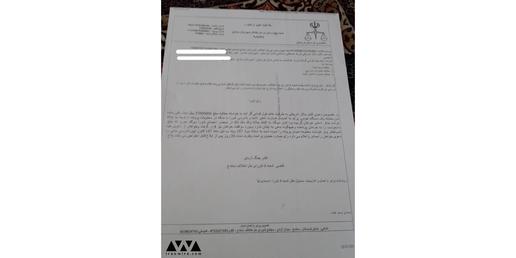
However, Ghavami says, he continued to harass her, next becoming obsessed with the license plate of the car she had bought. "Mr. Sharifi, who still had the car registration documents in his hand,” she said, “refused to transfer the registration. He called shortly after the sale and said, ‘You must return the license plate before transferring the documents’. He complained to the police, who told me I had to resolve the matter or the car would be confiscated.
Sharifi then delayed replacing the license plate several times and eventually told Ghavami that the car had been sold to her at too low a price, and asked her to pay another million tomans (US$238) for a new license plate.
“Because I was working with the car,” Ghavami says, “I said I could make the money to pay him with. So he agreed to come and deliver the plates. On the day of the license plate transfer, when he saw the new car, he decided that one million tomans was not enough. He said I should sell the car, take back my own money and give the rest of the profit from the sale to him.
“He was bullying me. I answered back to me and he attacked me, punching and kicking me a few times and threatened to hurt me. Eventually, I paid him 700,000 tomans ($166) and the license plates were replaced."
The car’s documentation was still in Sharifi’s possession. Aware that Ghavami would need them, he continued to try to extort her. "I was supposed to pay him one million tomans from the sale of the car when the registration documents were transferred,” Ghavami explains. “But he did not want to transfer them and his harassment continued. He bothered me on the street and made grotesque suggestions. I lodged a complaint against him."
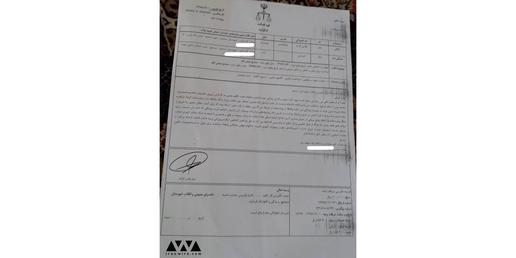
Police and Courts Flounder While Unhinged Attacker's Behavior Escalates
Ghavami says Sharifi still did not give up. The harassment and threats continued and became more brazen. "A while later, on 8 February 2019,” she recalls, “he tried to steal the car from my sister’s house, using his spare keys. The neighbors found out and took him to the police station."
At Naisar police station in Sanandaj, police told Ghavami that because the registration certificate was still in Sharifi’s name, it was not regarded as a robbery but a “dispute”. This was despite the fact that Sharifi had a history of criminal convictions and had been imprisoned for stealing in the past.
“They told me not to make a fuss,” says Ghavami, “and released Sharifi once he committed to addressing the dispute legally. Later I found out that he had stolen all my documents, including my driving license and the insurance card on the dashboard.”
This time, Ghavami filed a complaint against Salar Shariati at Branch 3 of the Sanandaj Prosecutor's Office. “On the day of the trial,” she says, “the judge repeated the argument of the police: that this was a dispute, not a theft, and this ‘gentleman’ said he had not stolen anything, and I had nothing to prove that he had. They rejected my complaint."
Ghavami objected to the verdict and the case was referred to Branch 103 of Sanandaj Criminal Court for review. The date of the hearing was set at 9:30 am on Sunday, June 9, 2019.
Meanwhile, Ghavami’s complaint about Sharifi's harassment and violence went to Branch 6 of the Court. At this separate hearing, Ghavami’s mother and sister testified as witnesses on her behalf, as did the man who had mediated the original car deal and was aware of Sharifi’s behavior.
“The judge did not accept the women’s testimony,” said Ghavami, “and they asked for two male witnesses to substantiate my claim. Here, a woman is not considered a person at all. There was no one else there to testify and my complaint was rejected."
Chance at Last-Minute Reprieve Snatched Away by Extortion Attempt
Sharifi’s harassment continued as the June 9 hearing date loomed, and frightened Ghavami. "On June 6, 2019, one day after Eid al-Fitr, I called him and told him that I would drop all my complaints, asking him just not to disturb me and my family anymore. He could sell the car, give me my money back and take the rest away.
“He said calmly, ‘No, I'm tired of this as well. I’ll get the remaining one million tomans and transfer the documents into your name.’"
Ghavami hoped her problems were finally resolved. But when she saw Sharifi two days later on June 8, he had abruptly changed his mind. Now he said he wanted 1.7 million tomans for the transfer.
"I said, you’re using force again. We made an agreement, and you said two nights ago that you accepted everything. But again you’re messing with me and going back on your promises. I said I’d pay the one million I owed him, and no more.
“He said ‘On the day of the trial, I’ll have a big surprise for you.’
“I was scared again. I went to the court and told the secretary I wanted to make my complaint in writing and would not attend court in person. But he said ‘You have to appear in court for the case to be heard.’"
According to Ghavami, Salar Shariati then called her that night and threatened to kill her in court the next day. "I put him on the speaker and my mother and father heard him. But even though I was afraid, I didn’t believe he would do any such thing in a courtroom and in the presence of the judge. Of course, I was wrong: a mistake that could have cost me my life.”
The Day of the Attack
On Sunday, 9 June 2019, Batool Ghavami went to court accompanied by her sister. The secretary called them at 9:30am. She and Salar Sharifi both entered the courtroom.
"The judge opened the file,” Ghavami remembers, “and after reading for a few minutes, he asked told Salar Sharifi, ‘Sir, what do you want from this lady? Why are you bothering her and harassing her?’
“He said, ‘She bought my car cheap from me.’ Then he took the Qur'an from the judge's desk and asked me to swear on the Qur'an that I had not bought the car cheaply.
“I said, ‘If you think you have been harmed, I tell you in front of the judge: take your car. Just undertake not to bother us anymore and don't have anything to do with me and my family."
Ghavami says the judge was reading the case notes and paid little attention to them. She approached the judge and showed him the receipts and proofs of payment. “I don't owe anything to this gentleman,” she told him, “but he has threatened me several times, slandered me and harassed me and my family, and even stopped me and my child in the street and disturbed me. Do something to stop him.”
According to Ghavami, it was at this moment that Sharifi suddenly threw the Qur'an he was holding aside and attacked her with the knife. Instead of helping Ghavami, the judge – who in an Iranian court of law, is armed for his own self-defence – ran from the room. Sharifi was able to Ghavami a total of 21 times in the arm, ear, chest, abdomen, abdomen, legs and buttocks before her sister could reach out to her.
“My sister, who came to my aid with my shout, could not overpower him, and the armed guards in the courtroom did not intervene. He even sat on my chest and broke almost all of my ribs, and still kept on stabbing me. But his wooden knife blade was too short. I fainted, and perhaps this saved my life.”
When Ghavami passed out, Sharifi dropped the knife and left – perhaps on the assumption he had killed her – and was arrested. In the interrogation report and the minutes of his subsequent police bail hearing, Sharifi clearly states that he had pre-prepared a knife in order to kill Batool Ghavami.

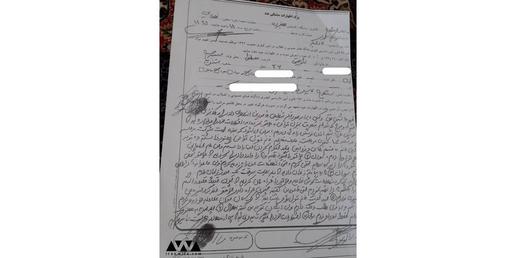
Three Months of Hospitalization; A Lifetime of Disability and Debt
After losing consciousness, Ghavami went into a coma. She woke up five days later at Kowsar Hospital’s intensive care unit. She remained in the ICU for 45 days and was then hospitalized for another two months within the gynecology department. Her discharge finally came after 105 days and at her own request, with some of her treatment left incomplete as she could not afford the medical bills.
Ghavami had undergone multiple surgeries on her left hand, chest, lungs, and abdomen. But her lungs were permanently damaged, she had completely lost the hearing in her left ear, and here left hand and four of its fingers were paralyzed. "All the ribs on the left and ribs seven, eight, nine, ten and eleven on my right were broken,” she says. “They said the bones would heal on their own.”
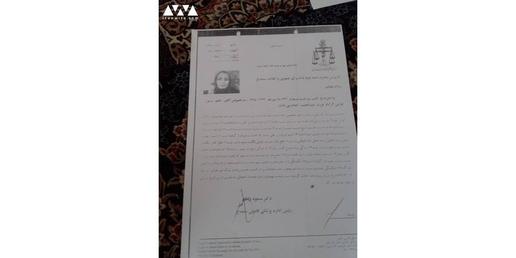
Ghavami has since had had follow-up surgery to try to improve her left hand in Sanandaj, Kermanshah and Tehran, but none of these procedures have been successful. Because she had been injured in an altercation, the health insurance company refused to cover her medical expenses.
“In the first days I was in the ICU in Kowsar Hospital, my family had to pay 12 million tomans ($2,856) just for a few injections bought on the medicine black market in Tehran that they said could help improve my hand. It was eventually put on hold because the money just was not there.”

Ghavami says she has since sold the car her attacker leveraged to disrupt her life. This was done with the help of the Saipa car manufacturer, which issued her with a new registration document. The money went towards paying off her family’s mountainous debts.
"For the medical expenses of 3 months and 15 days,” Batool Ghavami says, “we paid 46 million tomans ($10,947) for Kowsar Hospital, and more than 36 million tomans ($8,567) for two unsuccessful operations in Kermanshah and Tehran.”
The forensic doctor's report assesses 19 deep and semi-deep stab wounds inflicted on Batool Ghavami's body. She was left half-dead by the attack.
Justice System Fails Victim Utterly
The now blood-soaked court case resumed less than a week later July 14, 2019. This time, due to the extraordinary circumstances, it went ahead without the presence of Ghavami. Sharifi was there, however, and the very same judge of Branch 103 who had fled Sharifi’s raised knife the week before now acquitted him of theft.

The judicial system, however, did see fit to order the temporary detention of Sharifi for the attempted murder. He continues to issue threats against Ghavami from prison.
According to Ghavami, in the past year, several people have come to her house and declared themselves to be Sharifi's associates. One brought her a message: "They said that Salar Sharifi has said, ‘I will get out and finally finish my work. I wanted to do it in the courtroom and I was able to do it. You can't get rid of me.’
“I went go to the court and said I was threatened. They said ‘You should either have two witnesses or a camera in front of your house to record it with’."
Sharifi has appealed his detention several times. But instead, the temporary jail term has been extended each time he confessed to plotting to assassinate Ghavami.
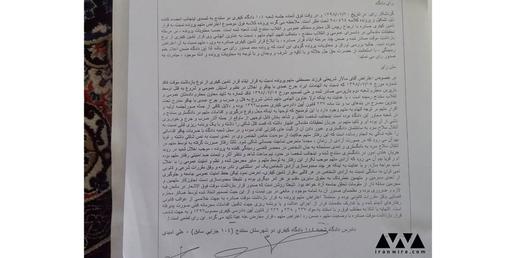
In the end, though, it was only a temporary detention. After one year elapsed on June 7, 2020, the First Branch of the Provincial Criminal Court, based on Article 242 of Iran’s penal code, canceled the order and set a bail of 350 million tomans for Sharifi’s release.

Three days later, Salar Sharifi was a free man. The first thing he did was contact Batool Ghavami. “On June 11,” she says, “my cell phone rang. When I answered I only heard one sentence. ‘I've come out and I'm sure that I'll finish the job.”
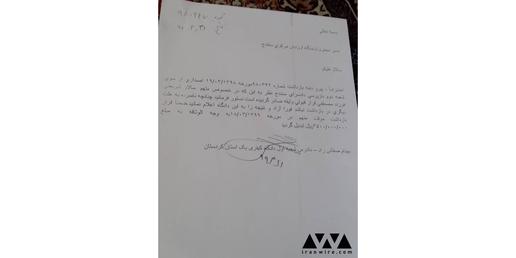
Ghavami says she could not believe he had been released. She assumed he had called from prison to try to intimidate her. "I went to the prosecutor's office,” she says, “and found out that he really had been released. I said my life was in danger. He’d called me and said he would finish the job. Why did they release him? The judge said it was the law, they couldn't keep him any longer. I said, ‘Why didn't the court prosecute him for attempted murder this year? Why didn't you consider a heavier bail? You set him free to kill me.’ The judge called the guards and they kicked me out with disdain."
Ghavami says she does not know why there were no charges brought against Sharifi for the attempted murder during this one-year temporary detention. "It was as if they were waiting for him to be released from prison and to actually finish his unfinished job,” she says. “A few days ago, on July 6, 2020, I received a court notification for October 28. If I survive, Salar Sharifi will then be tried in Branch 1 of the Criminal Court for trying to kill me."
A Prisoner in Her Own Home - As Would-be Murderer Walks Free
Ghavami says she now does not dare leave the house in fear for her life. Her trauma has been compounded as her sister’s neighbours, the same who previously witnessed Sharifi trying to steal the car, informed her they had seen Sharifi in the alleyway several times. “I don't know what he was doing there,” says Ghavami, “but I'm terrified and practically imprisoned in the house. I don't even dare to leave for my physiotherapy and medicine.”
“I have seen several lawyers and asked them to accept my representations, but none of them accepted. They said the matter had been dealt with by the judiciary and that as judiciary officials themselves had witnessed it, there was no need for a lawyer. They too stand on the safe side, and do not want to put themselves in danger.
“I am alone."
visit the accountability section
In this section of Iran Wire, you can contact the officials and launch your campaign for various problems






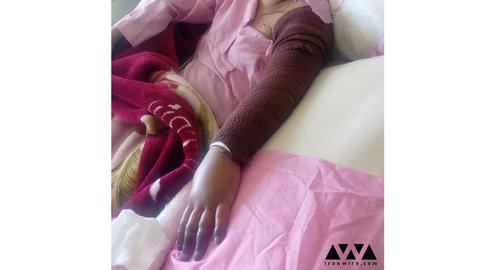

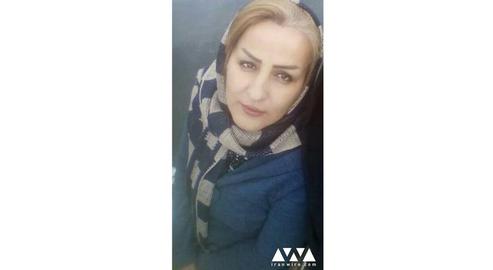
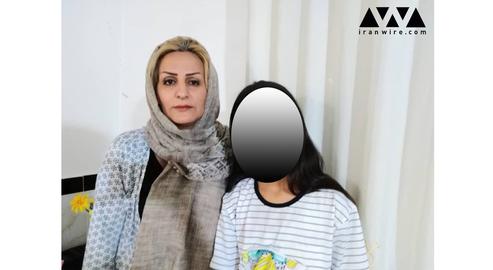



















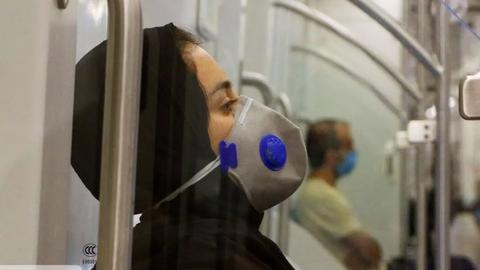
comments